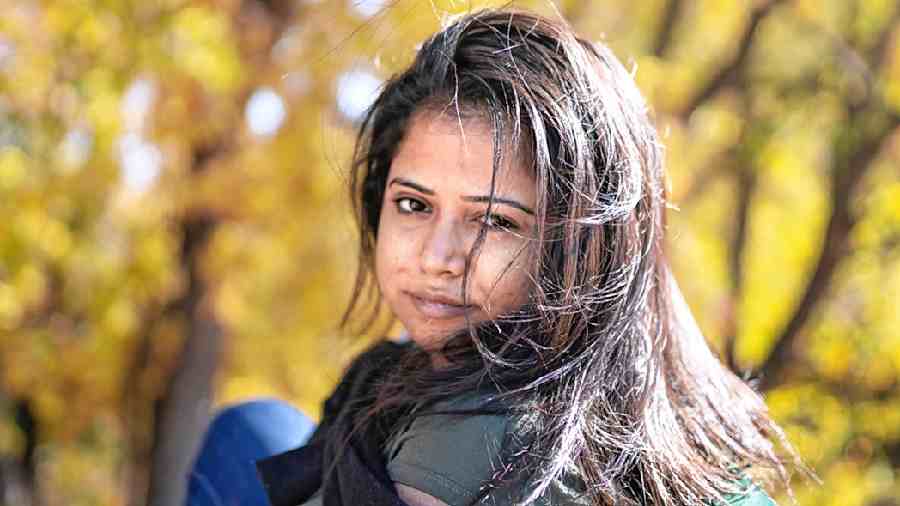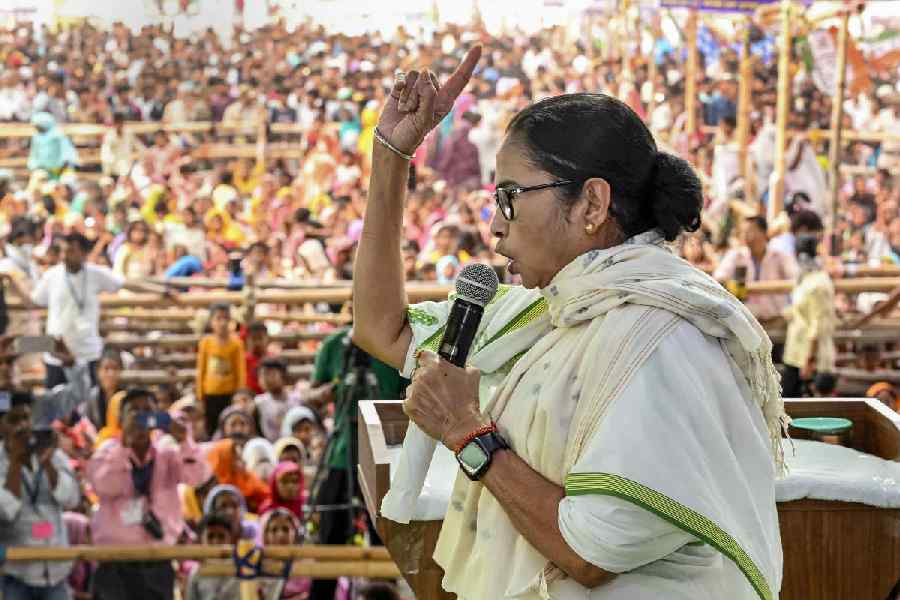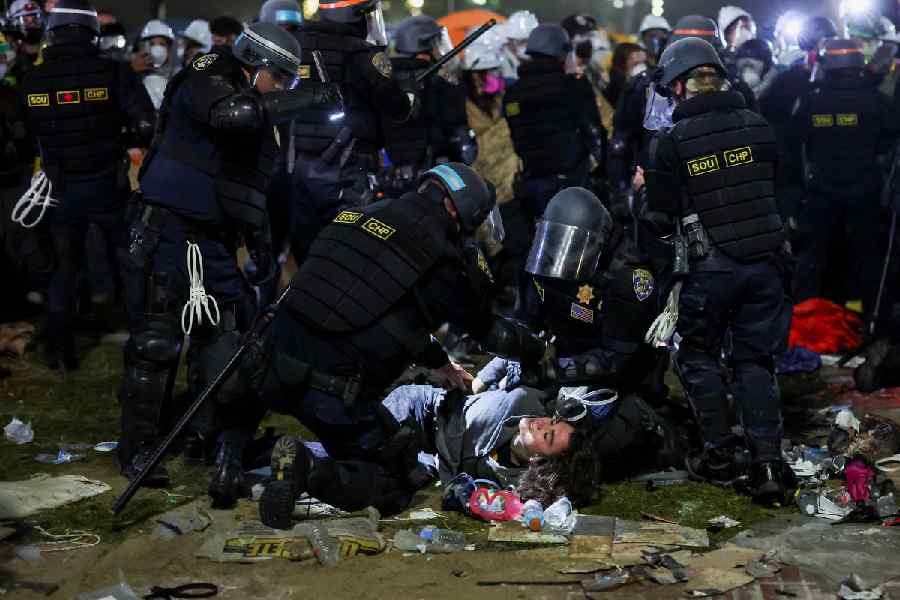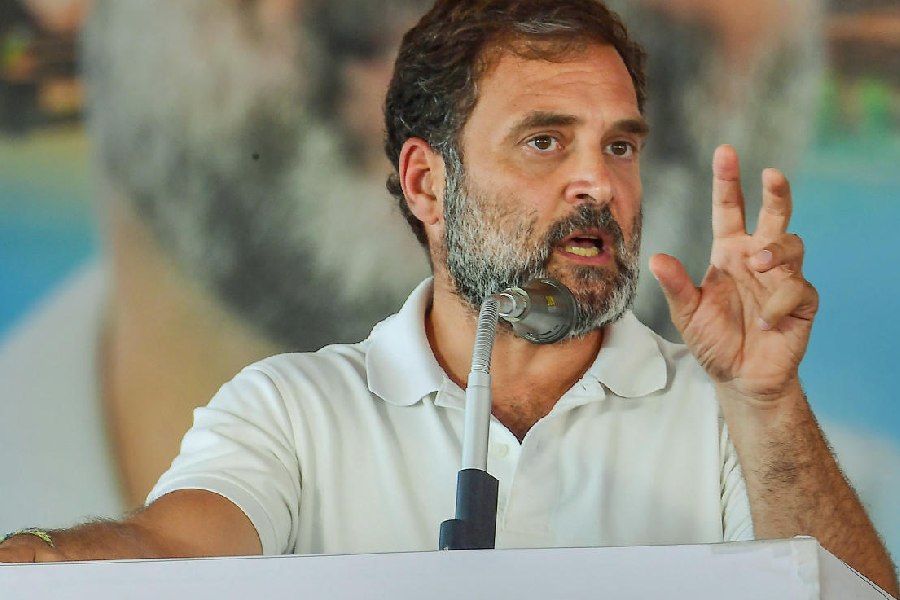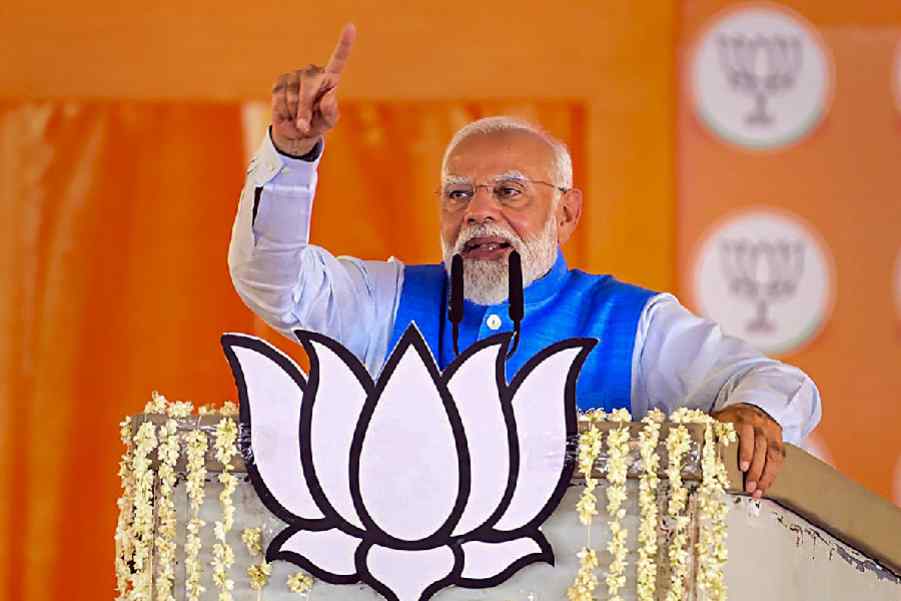Alokananda Dasgupta’s sublime and stellar background score in Jubilee is one of the strongest pillars the much-lauded series rests on. The Kolkata girl — she is the daughter of the late film-maker Buddhadeb Dasgupta — is, of course, not new to this world, with some of her best work (Sacred Games, Trapped, AK vs AK) happening with Vikramaditya Motwane, the creator and director of Jubilee.
The Telegraph chatted with Alokananda on recreating the golden age of Hindi cinema through her music pieces in Jubilee, how technicians are now given recognition and being her father’s daughter.
Jubilee is coming in for all-round praise, with its songs and background music being singled out for vast appreciation. What’s the best thing you have been told about your work?
My sister told me that Baba (film-maker Buddhadeb Dasgupta) would have been very proud of me. That is something that matters to me the most because my work in Jubilee was the last thing I shared with him (before he passed away in June 2021). My initial days of working on the music of Jubilee happened when he was really, really sick in the hospital. So there is a natural, sentimental link for me when it comes to Jubilee. There is definitely an impact of what I was going through in my personal life on the work that I did in Jubilee... the vision of my dad lying down and listening to my basic draft and telling me that it reminds him of one of the pieces of Maurice Ravel Bolero.
A lot of people have been writing in and saying beautiful things about my work in Jubilee. It is true that in the age of social media, being able to appreciate each other has become easier, but I would be lying if I don’t point out that this is a culture where the foreground is so important — I am talking about the stars and the fact that all the marketing of a project involves them only; a culture where the credits still say ‘music by’ and ‘background music by’... as if background score is not part of music; a culture where releasing a soundtrack is crazily difficult unless it’s a hit Bollywood album of eight songs.... In this kind of an environment that people are reaching out to me saying how the background score has positively impacted them should make me smell the flowers and think about it. That’s because normally I always tell myself that this is short-lasting, this is not real.... Personally, I did not think that the background score (of Jubilee) would have that much impact since the visuals and the songs were larger than life.
Do you always self-doubt and second-guess yourself when it comes to work?
Yes, I have always lacked confidence, I have essentially always been a nervous person. And Baba not being there has also added to it. After he was gone, I remember writing to Vikram (Vikramaditya Motwane, director) and saying: ‘Who will I run it by?’ Baba used to love Vikram’s work... he was perhaps the only film-maker in India who he admired. After he was gone, I felt: ‘Why am I doing this?’ Even otherwise, I have always been plagued by self-doubt.
Last year, I met (A.R.) Rahman in Toronto and he was someone Baba used to admire a lot. He had always told me: ‘When you meet Rahman, let me know immediately’. All these years, I never met him and it was a chance meeting in Toronto. When I came out, the first person I wanted to tell about it was Baba, but he was gone. That realisation just took out the joy from what I had felt while meeting Rahman.
In terms of scale and challenge, where would you place Jubilee among all the work that you have done so far?
I would like to differentiate between challenging and scary. It was very scary for me to think that I would have to interpret the larger-than-life visuals of Jubilee correctly. There was also this huge fear of letting Vikram down... we click very well. Not letting him down connected to not letting Baba down... and that fear was always there.
The reason why this wasn’t so challenging is because due to my training, my first language of expression is Western classical. The minute there is orchestration and acoustic Western classical idiom in my music, I find it relatively easier. I could express my thoughts easily because of the orchestration, but I was petrified that I wouldn’t be able to interpret the zone right.
Everyone is talking about the world-building in Jubilee... the period, time, era... but Vikram has also created one of his own. He has an affinity for stories out of Bengal, old Hindi film songs.... for me to recreate the world that Vikram had created through my music was scary.
What was the brief given by him?
I was told that the melodies could be modern but the instrumentation must belong to that time. Vikram also told me to make it timeless and which is anyway what the plot and characters of Jubilee are... they are timeless. He used two very interesting words — ‘pride’ and ‘ambition’ — which apply to all the characters. I drew a parallel between them and all the tragic Greek heroes and even Edward II, Hamlet, Macbeth.... the idea was to look at a person who rises very high, hubris sets in and there is a giant downfall. It is the timeless concept of the destruction of one life — the ego, the rise, the downfall, the artistic ambition that eats one up... Vikram used all these terms and I then did my own analysis. Macbeth seeing Banquo’s ghost... I drew a parallel between that and Madan Kumar (Aparshakti Khurana) seeing Jamshed’s (Nandish Singh Sandhu) ghost.
Did you refer to any pieces of music from that era for your work on Jubilee?
Vikram made me watch the opening credits of Shree 420, Aar Paar, Chalti Ka Naam Gaadi, Mahal.... It was an exercise that really helped. Even otherwise, audio-visually, I have been very familiar with the palette of old Hindi cinema and also old Bengali cinema.
Is there any particular part of the BGM from Jubilee that is your favourite?
I am naturally a dark and morbid person (laughs), and so Madan Kumar seeing Jamshed’s ghost was a part that I liked because it is slightly different in terms of the use of instrumentation and use of progression of the melody. That scene keeps coming back and the music piece becomes a representation of Madan Kumar’s guilt. Also, the piece where Srikant Roy (Prosenjit Chatterjee) dies and when the series ends... I felt inspired by (Satyajit) Ray in that.
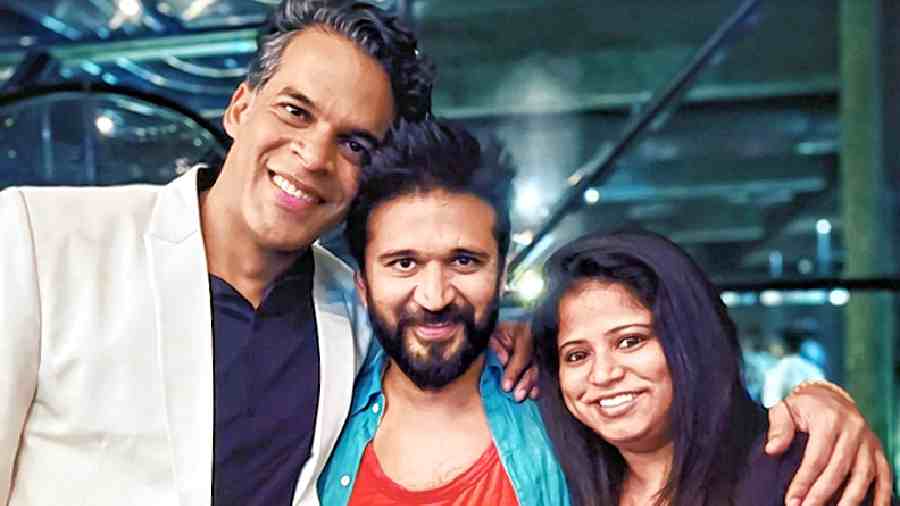
Alokananda with Vikramaditya Motwane (left) and Amit Trivedi
What about working with Vikram Motwane brings out the best in you? And what was it like working with Amit Trivedi again?
Vikram knows me well enough to see through me... my loopholes, my mistakes, my problems and he knows how to extract the best out of me. Also, we have a common taste in music. He knows that when I am sketching an idea, it’s not the final version... very few directors understand that.
I assisted Amit Trivedi back in the day (on Udaan, No One Killed Jessica, Aisha and Chillar Party) but apart from that, we don’t have a working relationship as such. Even the songs in Jubilee were done completely separately. Vikram was the thread that held us together. But we did work together in AK vs AK where Amit sang a song for me called Ghum. It was kind of a full-circle moment.
Even though the stars and actors are at the forefront of a project, would you say that the credit given to technicians has improved, at least a little bit, in the last few years?
It definitely has... otherwise it would have been very claustrophobic for me to survive. With time everything changes. People now single out the background score of a film or series and try and look up who did it... until a few years ago, that was a minority. Now there are many more like that.But it still hasn’t reached a stage where you trust it openly. There is a discrepancy in finances. It’s not something that immediately makes money because of which the attitude towards it is different. But I have to admit that people’s attention to background music has been drawn in a far more sensitive way than before.
Is there a place where you want to be in the next few years?
I want to be in a space where fear is deducted from the relationship that I have with my work. It used to be like that when I started out because though there was always self-doubt, there were no expectations from me.Confusion in life has been a constant for me. At times, I feel if I should become a dancer because our late mother was one and she wanted both me and my sister to do Odissi; at times, I feel I should direct a film; at times, I just want to do classical performances to make Baba happy wherever he is; I suck at playing the piano, so maybe I should learn that... I have never been clear, but whatever I do now, I want to be free of fear and do it for myself only.
Is there anything your father told you that you carry with you every day?
His simple advice to me always was: ‘Never ever forget the huge power that melody has’.

